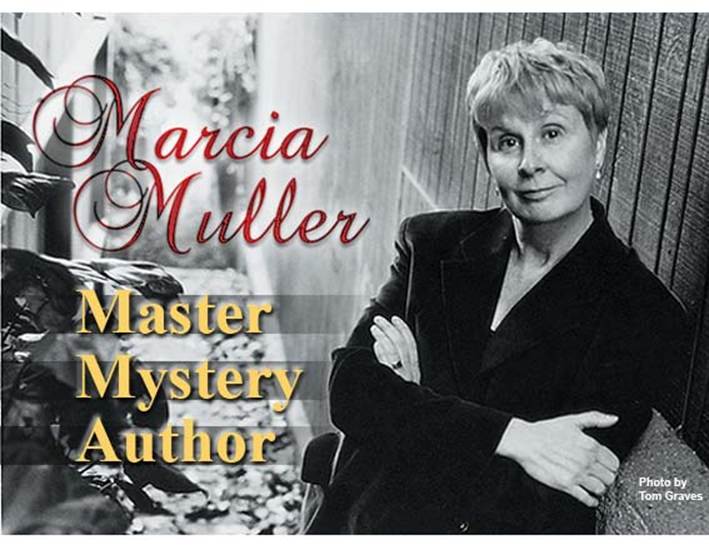magazines and paperbacks, dishes in a drainer by the sink, a well-scrubbed stove top and counters. My impression of Hertz as a tidy housekeeper was contradicted, however, by a bowl of rotting fruit on the dining table and milk and vegetables spoiling in the fridge.
A tiny hallway led to a single bedroom and bath. The bed was made and clothing hung neatly in the closet. In the bathroom I found cosmetics and a toothbrush in the holder and a round compact containing birth control pills. The date above the last empty space was that of the day before the picnic at Pyramid Lake.
On my way out I spotted the glowing answering message light on the answering machine. “Christy, this is Dale. Just checking to see how it went. I love you.”
“Christy, are you there? If you are, pick up. Okay, call me when you get this message.”
“Christy, where the hell are you? For God’s sake, call me?”
“Okay, let me guess: You patched it up with Scott. The least you could do is tell me. But then you couldn’t tell him about me, now could you?”
“I’m giving you one more chance to explain. If you don’t return this call within twenty-four hours, that’s it for us!”
Christy Hertz hadn’t been too wise in her choice of either man.



I’d never been to Pyramid Lake before, but as I stood on a boat launching ramp on its western shore, I felt as if I’d come home. Like Tufa Lake, it was ancient and surreal, the monolith from which it had taken its name looming darkly; on the far shore clustered domes and pinnacles very like the tufa towers. A high, milky overcast turned the still water to silver; a few boats drifted silently in the distance; above, the migratory waterfowl wheeled, swooping low in their quest for food.
The lake was some thirty miles north of Reno, surrounded by a Paiute Indian reservation. Upon my arrival I’d driven along the shore to Sutcliffe, a village whose prefab homes and trailer parks and small commercial establishments seemed to have been scattered beside the water by some gigantic and indiscriminate hand. There I’d shown the picture Scott Oakley’s mother had given me to clerks in grocery stores and boat rental and bait shops-anywhere a couple on a picnic might have stopped-but to no avail. At the offices of the Pyramid Lake Tribal Enterprises-whose function seemed to be to sell fishing licenses-I was advised to try Saltby’s Bait and Tackle, some ten minutes north. But Saltby’s was closed, and I was fresh out of options.
A sound made me turn away from the water. A rusted-out white pickup, coming this way. It pulled up next to the little store, and an old man got out; he unlocked the door, went inside, and turned the Closed sign over to Open. I hurried up the boat ramp.
The man had longish gray hair and a nut-brown complexion weathered by years of harsh elements, and the reception he gave me was as one of his own. My great-grandmother was a full-blooded Shoshone, and my looks reflect her part of the family gene pool; sometimes that’s a hindrance, but it can also be a help.
I showed him Scott’s picture. “Two weeks ago Thursday, did you see this man? He would’ve been with a redheaded woman-”
“Yes. They’ve come here many times. They always rent one of my motorboats and take a picnic to the east shore.”
“And you’re sure about the date?” He nodded. “What time did they get here?” He reached under the counter and produced a rental log, ran a gnarled finger down the listing. “Ten in the morning. They brought the boat back at four-a long time for them.”
“When they brought it back, who returned the keys and paid?”
“The young man.”
“Did you see the woman?”
He considered. “No. No, I didn’t.”
The only other thing I needed to ask him was how to find the office of the tribal police.



The tribal police located what was left of Christy Hertz’s body at a little after three that afternoon. It was concealed in a small cavern fashioned by the elements out of a dome on the east shore, and beside it lay a bloodstained rock. Her skull had been crushed.
I could imagine the scenario: Scott pressing her to set a wedding date; Christy telling him she already had one, but with someone else. And Scott-the good kid who took life so seriously, who worked hard at doing the right thing and now couldn’t understand what he’d done wrong-striking out at her. Striking out in blind anger, because everything he cared about was being taken from him.
After he hid the body, he went through the motions-returning the boat, driving down to Vernon as scheduled. When he was unable to conceal his distress from his mother, he’d come up with a lie that would made his suicide look to be an accident. And then he’d taken the Cessna trainer around the pattern at Tufa Tower-three times, perfectly, so Hy could get out of the plane. Perfectly, so he could end his own life.



The next afternoon I was at the controls of the Citabria, and Hy rode in the backseat. I put it into a steep- banked turn, keeping the tip of the left wing on Plover Island, where Scott had crashed and burned.
Through our linked headsets, Hy said, “A decent kid is pushed too far, kills somebody he loves, and then kills himself. He was so intent on dying and such a good actor that I hadn’t a clue.”
“And now his mother will have to live with what happened.”
“At least she’s got the comfort of knowing he tried to spare her.”
“Small comfort.”
“Dammit, McCone, why don’t suicides think of the people they’ll be leaving behind?”
For a moment I didn’t speak, concentrating on fighting the winds aloft, trying to keep the wingtip centered on the island. It’s an exercise in directional control you learn during flight training, and normally I enjoy it. Not today, though, not in these winds.
I gave up on it and headed south, to check out the obsidian domes at the volcanic field. “Ripinsky,” I said, “suicidal people are very self-involved, we all know that. And a lot of them, like Scott, just plain don’t want to take responsibility for their own lives.”
“So they crap up everybody else’s life too.”
I put on full throttle and pulled back on the stick; instead of flying over the domes, I’d taken it way up. Practice some aerobatic maneuvers. Nothing amused Hy more than being along for the ride when I managed to turn a simple loop into something that resembled a corkscrew. And he badly needed to be cheered up right now.
“You know,” I said, “it occurs to me that a life lived well is a lot like a solo flight. You accept responsibility, do the best you can, and go on from there.”
I glanced back at him; he nodded.
“And that’s enough philosophizing for today,” I added.
I leveled off, pulled back on the stick, and pushed the throttle in all the way. The plane shot upward on the vertical. In ten seconds, I had him laughing.
Marcia Muller



